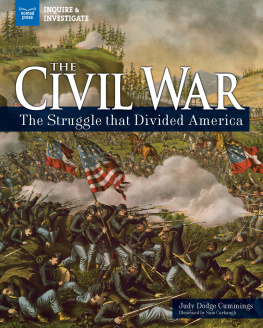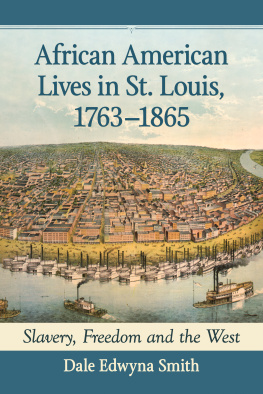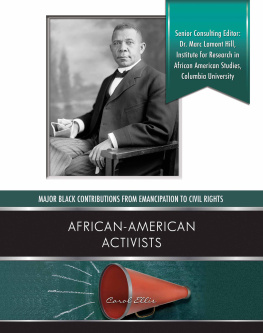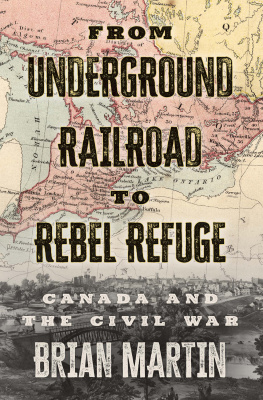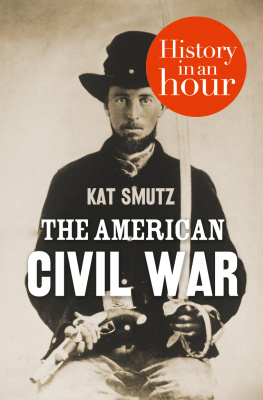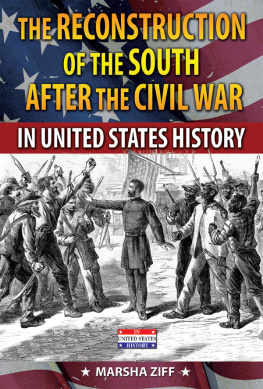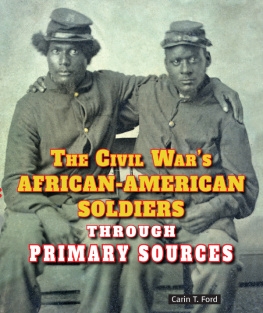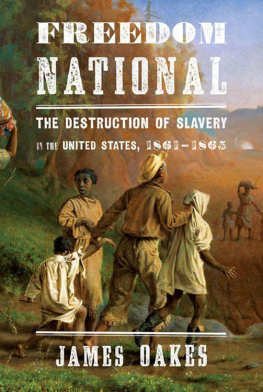Acknowledgements
M any individuals and organizations have graciously contributed to the publication of this book and it is my pleasure to recognize and to thank them.
This undertaking would not have been possible without the financial support of the Canada Council for the Arts.
There are several people who gave so much of their talents and their time during the various stages along the way. My wife, Shannon, helped in a myriad of ways from assisting on research trips during the early stages to tracking down and doctoring old photographs that appear within the book. My daughter Rebecca helped with some of the time-consuming tasks that are a part of completing this work.
Some of the most gratifying experiences related to the pursuit of history are the people that you meet along the way. Several of those who we have had the good fortune to meet, to learn from, and hopefully at least in a minor way to share new information were and are authorities in this field. Two of them, Tom Brooks of Gravenhurst, Ontario, and Norman McRae of Detroit, Michigan, are no longer with us, but their incredible work, encouragement and inspiration outlives them. Cut from that same cloth is Benny McRae Jr. from Ohio whose Lest We Forget website is a treasure trove of information. Our friend, Charles Brewer, was always eager and helpful in pulling compiled military service records, pensions, and other documents from Washington, D.C.s National Archives, Library of Congress and other institutions. My respect for these men is enormous and their generosity and friendship remain in a special place.
On many occasions, we have enjoyed watching and meeting several Civil War re-enactment groups, including the 102nd USCT, 10th Louisiana Infantry, 54th Massachusetts, 6th New York Volunteer Cavalry, 4th Michigan Infantry, 2nd Louisiana Medical Brigade, and Donaldsonville Louisiana Artillery. Dennis Watson, Donna and Wayne Elliot, Larry and Jacqui Reynolds, Donald Vest, Ross Fowler, Tim and Teresa Warnick are just a few of those many members who have worked to bring that history to life and who have participated in events that celebrate the memories of those who fought in the Civil War.
It has been a special treat to meet with descendants of Civil War soldiers. Dalyce Newby and Irene Moore Davis, both historians, work to chronical their lives and both shared family photographs for this book. A unique memory was watching the Dudley family celebrate the unveiling of an official Civil War tombstone at the resting place of their ancestor. Historians and friends Kate Clifford Larson from Boston, Karolyn Smardz Frost from Wolfville, Nova Scotia, Donna Ford from St, Catharines, Wilma Morrison from Niagara Falls, and genealogist Tony Burroughs from Chicago have always freely shared information and advice and given help along the uncertain paths of research.
Professor Loren Schweninger from the University of North Carolina, Chapel Hill, has done remarkable work over the years, including chronicling the lives of the various members of Rapier/Thomas family. I am indebted to him for his research which he has shared both publicly and privately. I would also like to thank the staff, particularly Esme Bhan, Jean Currie Church and Joellen El Bashir, from the Moorland-Spingarn Research Center, Howard University in Washington D.C. for their guidance and cheerful help in sharing the Rapier Papers and the Shadd Papers in the collection which is housed in their care.
Digitizing projects are a god-send to researchers. Particularly useful are Documenting the American South (University of North Carolina, Chapel Hill); American Memory (Library of Congress); the Samuel J. May Anti-Slavery Collection (Cornell University), which freely offers books and documents that have long since been out of print; Canadian abolitionist newspapers of the 1850s at OurOnatrio; and American newspapers at AccessibleArchives and GenealogyBank. Ancestry, fold3 and the U.S. National Parks Services Civil War Soldiers and Sailors System are of special importance to Civil War researchers.
My favourite repositories while researching this (as well as other black history projects) are The Burton Collection at Detroit Public Library; Western Archives at University of Western Ontario in London; Houghton Library, Harvard University; Library of Congress and National Archives Record Administration in Washington D.C.; Buxton National Historic Site & Museum in North Buxton; and Library and Archives Canada in Ottawa. I am grateful to all of the staff members there, and to those at all of the other libraries and archives I have visited or corresponded with, who helped me.
And as is all-too-often the case and too-seldom expressed, my thanks go to my family, Chris, Justin, Melanie, Rebecca, Shannon, and dad, who filled in my missing place on the farm and at other places while I wrestled with the manuscript a pretty tough customer. I do wish to acknowledge that there were scores of men from Canada East, Canada West and the other British North American provinces who served in the Union navy. They too are deserving of recognition and praise for their service and perhaps an in-depth tribute for another time.
The staff at Dundurn Press are amazing to work with and I thank them for their guidance, their help and particularly for their patience. I expect that they were reminded of the phrase that the road to Hell is paved with good intentions and I appreciate that they never suggested that I take that particular exit. Shannon Whibbs, Carrie Gleason, Britanie Wilson, Sheila Douglas, Allister Thompson, Synora Van Drine, Caitlyn Stewart, Karen McMullin, Barry Penhale, Jane Gibson, president Kirk Howard, and everyone on the team, please accept my sincerest thanks.
Bibliography
Adams, Virginia M. On the Altar of Freedom: A Black Soldiers Civil War Letters from the Front. Corporal, James Henry Gooding. Amherst, MA: University of Massachusetts Press, 1991.
Bacon, Margaret Hope. Rebellion at Christiana. New York: Crown Publishers, 1975.
Berlin, Ira, Barbara J. Fields, Steven F. Miller, Joseph P. Reidy, and Leslie S. Rowland. Free at Last: A Documentary History of Slavery, Freedom, and the Civil War. New York: The New Press, 1992.
Blackett, R.J.M. Thomas Morris Chester Black Civil War Correspondent: His Dispatches from the Virginia Front. Baton Rouge and London: Louisiana State University Press, 1989.
Brown-Kubisch, Linda. The Queens Busy Settlement: Black Pioneers 18391865. Toronto: Natural Heritage Books, 2004.
Collison, Gary. Shadrach Minkins: From Fugitive Slave to Citizen. Cambridge and London: Harvard University Press, 1997.
Drew, Benjamin. The Narratives of Fugitive Slaves (The Refugee: or the Narratives of Fugitive Slaves in Canada: Related by Themselves, with an Account of the History and Condition of the Colored Population of Upper Canada). Toronto: Prospero Books, 2000.
Duncan, Russell. Blue-Eyed Child of Fortune: The Civil War Letters of Colonel Robert Gould Shaw. Athens, GA: The University of Georgia Press, 1992.
Eisenschiml, Otto and Newman, Ralph. The Civil War: The American Iliad as Told by Those Who Lived It. New York: Mallard Press, 1956.
Emilio, Luis F. A Brave Black Regiment. Boston: Boston Book Company (The Basic Afro-American Reprint Library), 1894.
Emilio, Luis F. A Brave Black Regiment: The History of the Fifty-Fourth Regiment of Massachusetts Volunteer Infantry 18631865. New York: Da Capo Press, 1995.
Forbes, Ella. But We Have No Country: The 1851 Christiana, Pennsylvania Resistance. Cherry Hill, NJ: Africana Homestead Legacy Publishers, 1998.
Gibbs, C.R. Black, Copper & Bright: The District of Columbias Black Civil War Regiment. Silver Spring: Three Dimensional Publishing, 2002.
Gladstone, William A. United States Colored Troops: 18631867. Gettysburg: Thomas Publications, 1990.


